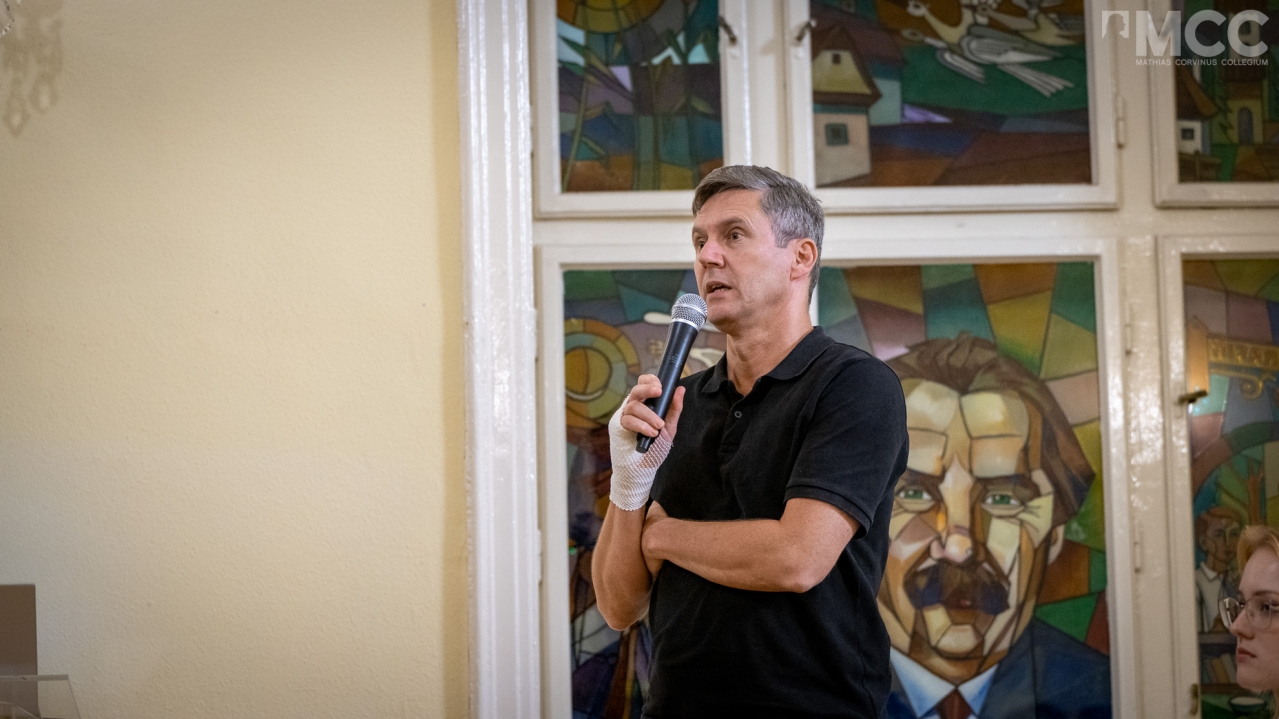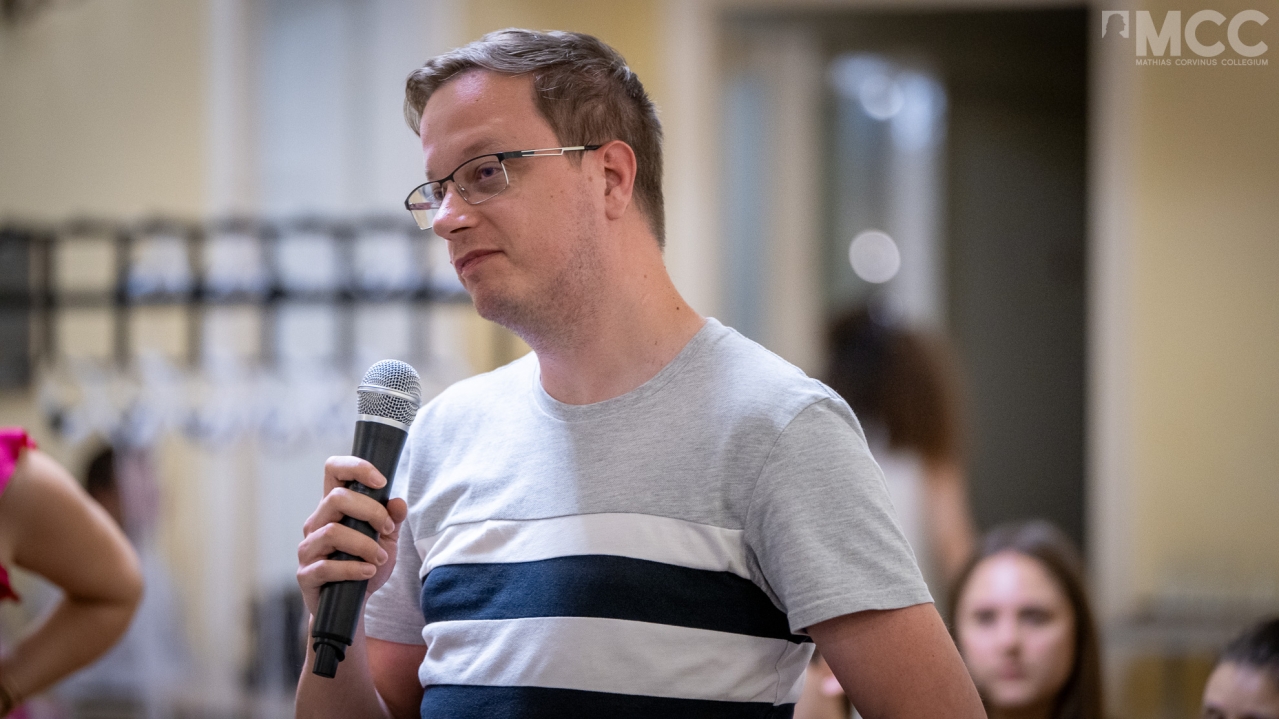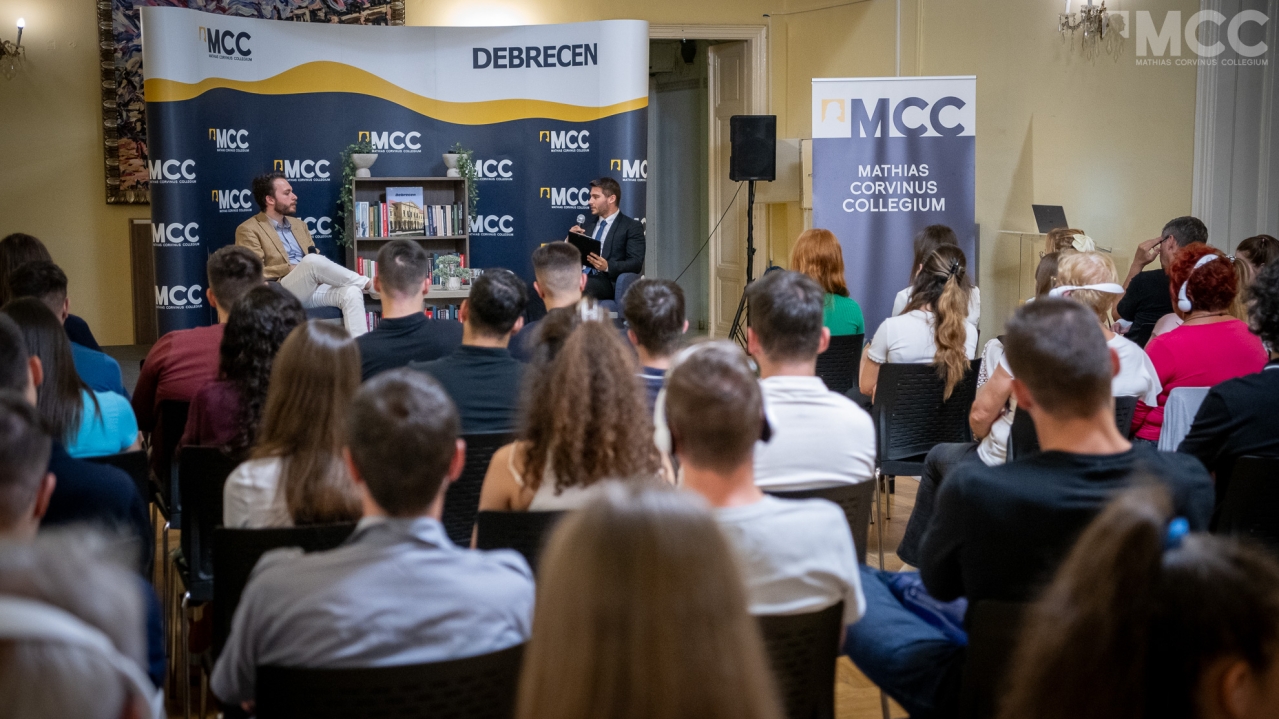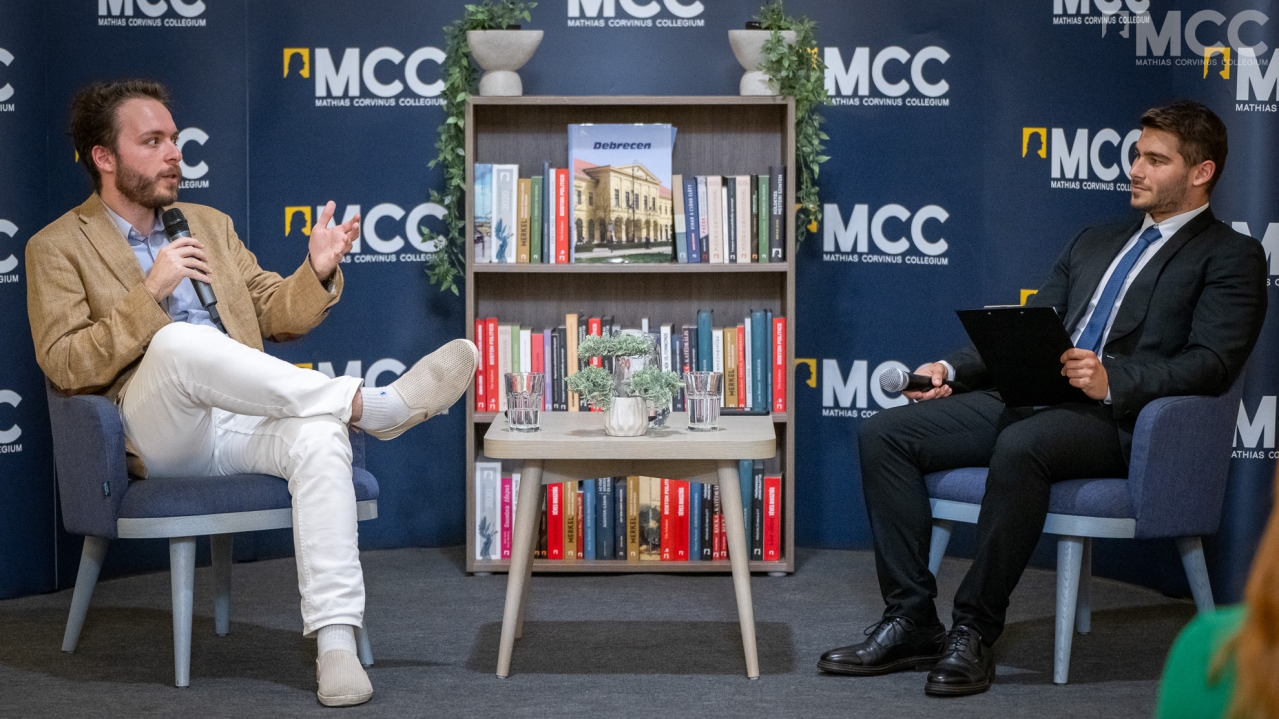Reading time: 2 minutes
"Understanding other countries’ collective memories is crucial for successful diplomacy, one cannot, for example, understand Hungary without understanding how Hungary remembers Trianon. Neither would I recommend anyone embark on a diplomatic mission to Hungary without understanding 1956 means either," said Stephen Travis Sholl, Head of MCC's International Communications Group, and guest speaker at MCC-Debrecen.
To explain better the complexity of memory politics, Stephen Sholl used several historical comparisons and modern-day examples to explain the topic.
One of these examples was the comparison between the Holocaust and the Circassian genocide perpetrated by the Russian Empire at the end of the 19th century.
While Mr. Sholl acknowledged the exact numbers are still disputed but historians, it is estimated by some that as many as 3 million people lost their lives in the Circassian genocide, a number comparable to that of the Holocaust. Furthermore, he pointed out that while the Holocaust is well documented and widely taught about, little is known about the Circassian genocide, thus it holds little if any place in the world’s collective memory.
In his presentation Stephen Sholl argued that "Every nation, every ethnic group has the right to commemorate events of its own history in a way that it wishes.", but acknowledged that this results in different countries having different memories of the same event or time period, such as communism when compared to its memory in Russia or Hungary.
"In most collective memories, everyone sees themself as good or the ‘hero’. Even Russia, while acknowledging some of the crimes of the Soviet period, also tries to portray the Soviet Union as the "good guys", even though reality was quite different. The differences between narratives of different groups lies in how complex the memories are. When memories are not based in reality or on what really happened, it's obviously going to be very controversial and complex."
These and other examples mentioned during the discussion shed light on the importance of a deeper reflection on the significance of memory politics and its role in society and international relations. Memory politics shapes not only our past, but also our present and future, and is therefore worth understanding and learning about.






